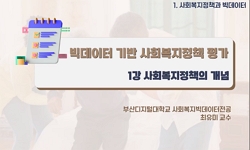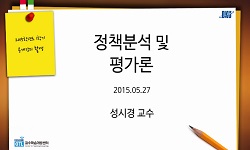본 연구는 다문화 가족복지 정책 단일사례를 주제로 이를 구성하고 있는 특징을 집중적으로 분석하기 위해서 정권별로 나타난 정책도구의 특징을 역사적 접근(historical approach) 방법에 따라 ...
http://chineseinput.net/에서 pinyin(병음)방식으로 중국어를 변환할 수 있습니다.
변환된 중국어를 복사하여 사용하시면 됩니다.
- 中文 을 입력하시려면 zhongwen을 입력하시고 space를누르시면됩니다.
- 北京 을 입력하시려면 beijing을 입력하시고 space를 누르시면 됩니다.
다문화 가족복지 정책도구의 선택과 조합에 관한 분석 - 노무현 및 이명박 정부 간 비교를 중심으로 -
한글로보기https://www.riss.kr/link?id=G3747435
- 저자
-
발행기관
-
-
발행연도
2016년
-
작성언어
Korean
- 주제어
-
자료형태
한국연구재단(NRF)
-
0
상세조회 -
0
다운로드
부가정보
국문 초록 (Abstract)
본 연구는 다문화 가족복지 정책 단일사례를 주제로 이를 구성하고 있는 특징을 집중적으로 분석하기 위해서 정권별로 나타난 정책도구의 특징을 역사적 접근(historical approach) 방법에 따라 노무현 정부와 이명박 정부 간의 비교 연구를 진행했다. 즉, 다문화 가족복지 정책사례를 연구 주제로 선정하여, 정책이 형성되는데 영향을 미친 정책맥락적 요인으로써의 정책환경에 따라 설정된 정책목표가 무엇이고, 이를 정책집행과정에서 실현시키기 위해서 고안된 정책도구의 선택 및 조합의 과정이 어떠한 변화를 보이는가에 대한 정권별 비교·연구를 진행했다. 본 연구는 Yin(2009)이 제시한 사례연구설계의 유형 중에서 단일사례 하위단계 설계(single case embedded design) 방법론을 사용하여 진행했다. 연구결과, 다문화정책은 정권별로 정책맥락의 변화에 따른 정책목표의 설정 및 그에 따른 정책도구의 선택과 조합 과정의 변동성이 매우 강하게 나타났다. 이를 통해서, 정책맥락, 정책목표 및 정책도구 간의 정합성에 따른 정책설계의 중요성을 도출해낼 수 있는 시사점이 도출되었다.
다국어 초록 (Multilingual Abstract)
In turn, this study analyzed in a view of historical approach about Conformability between policy goals and policy instruments policy on multi-cultural family in comparison of ranging from Roh Moo-Hyun and Lee Myoung-Bak government. Analytic methodology of research applied to single case embedded design of Yin(2009). This methodology is a useful tool to analyze characteristics of sub-system in a case study. This study reviews government policy instruments theoretically which are utilized to achieve policy goals. It also analyzes choosing and mixing process of policy instrument in relation to multi-cultural family policy in Korea. As a result, there is drastic changeability of policy pattern of multi-cultural family in Korea.
In conclusion, This study also explains the important knowledge of relation between policy goal and policy instruments which formulated as a result of the learning related to the change of the policy context.
This study derives from the question that why governmental supporting policy on multi-cultural family are different according to different Regime? That is to say, this study is conducted by assuming policy are different by each Regime’s view points,...
This study derives from the question that why governmental supporting policy on multi-cultural family are different according to different Regime? That is to say, this study is conducted by assuming policy are different by each Regime’s view points, and to find the causes.
In turn, this study analyzed in a view of historical approach about Conformability between policy goals and policy instruments policy on multi-cultural family in comparison of ranging from Roh Moo-Hyun and Lee Myoung-Bak government. Analytic methodology of research applied to single case embedded design of Yin(2009). This methodology is a useful tool to analyze characteristics of sub-system in a case study. This study reviews government policy instruments theoretically which are utilized to achieve policy goals. It also analyzes choosing and mixing process of policy instrument in relation to multi-cultural family policy in Korea. As a result, there is drastic changeability of policy pattern of multi-cultural family in Korea.
In conclusion, This study also explains the important knowledge of relation between policy goal and policy instruments which formulated as a result of the learning related to the change of the policy context.











